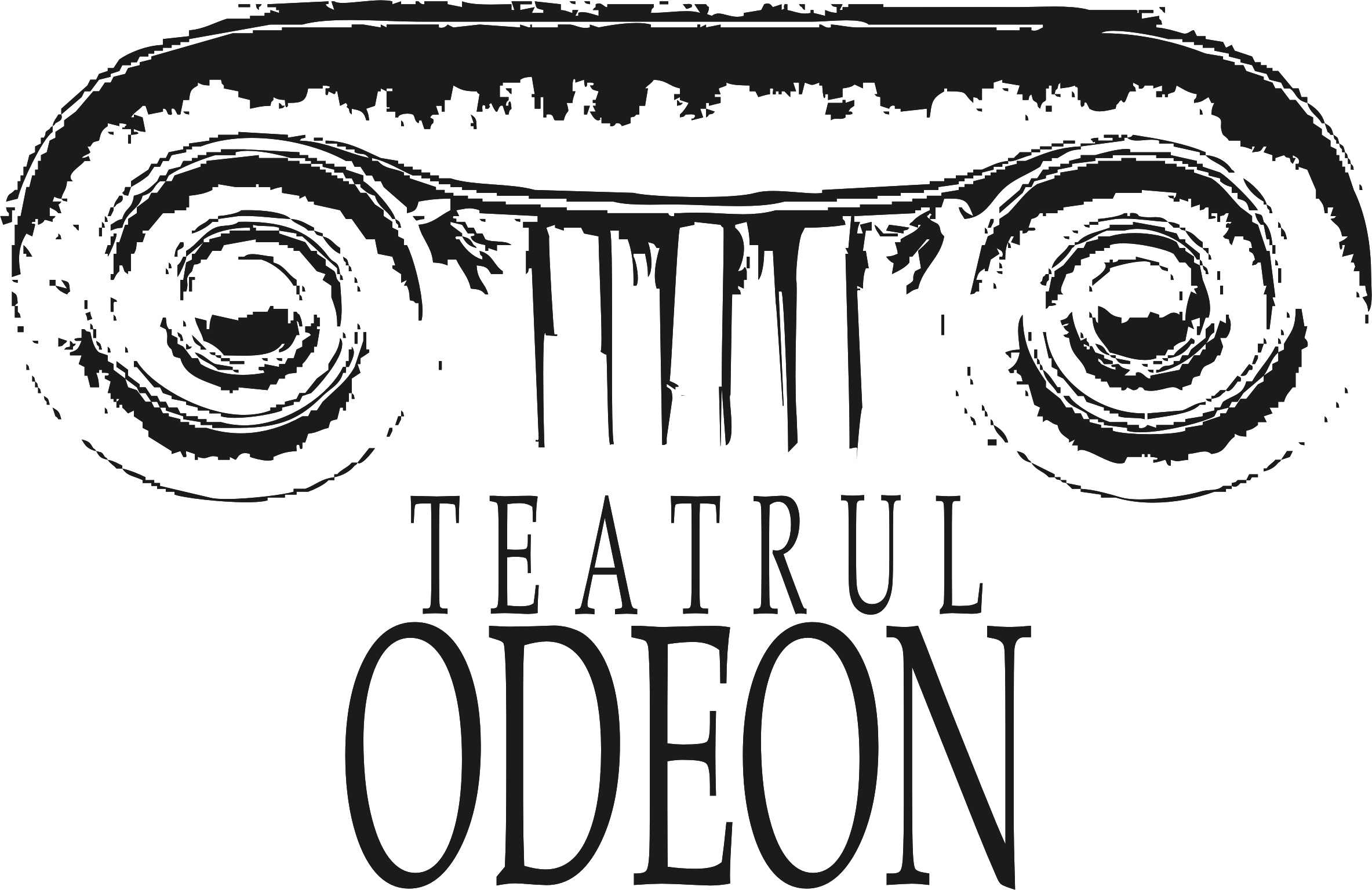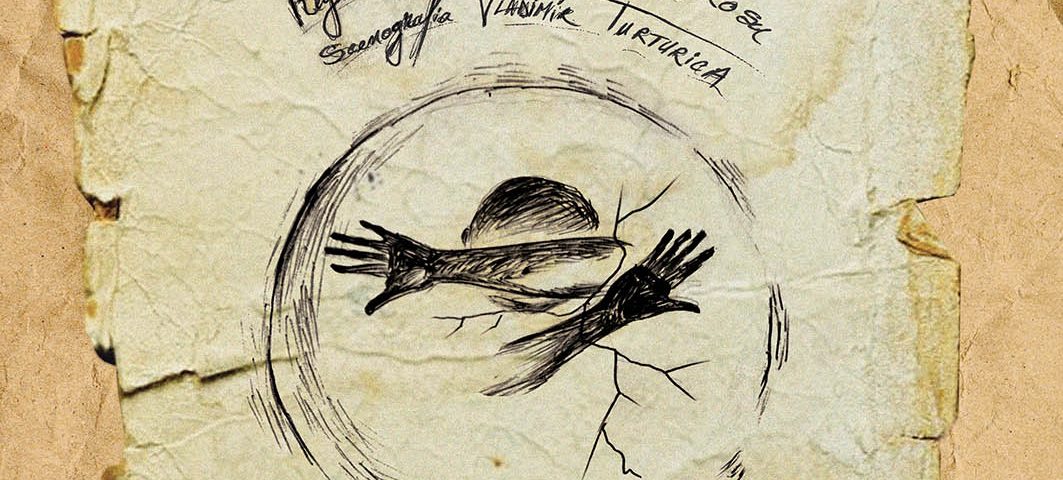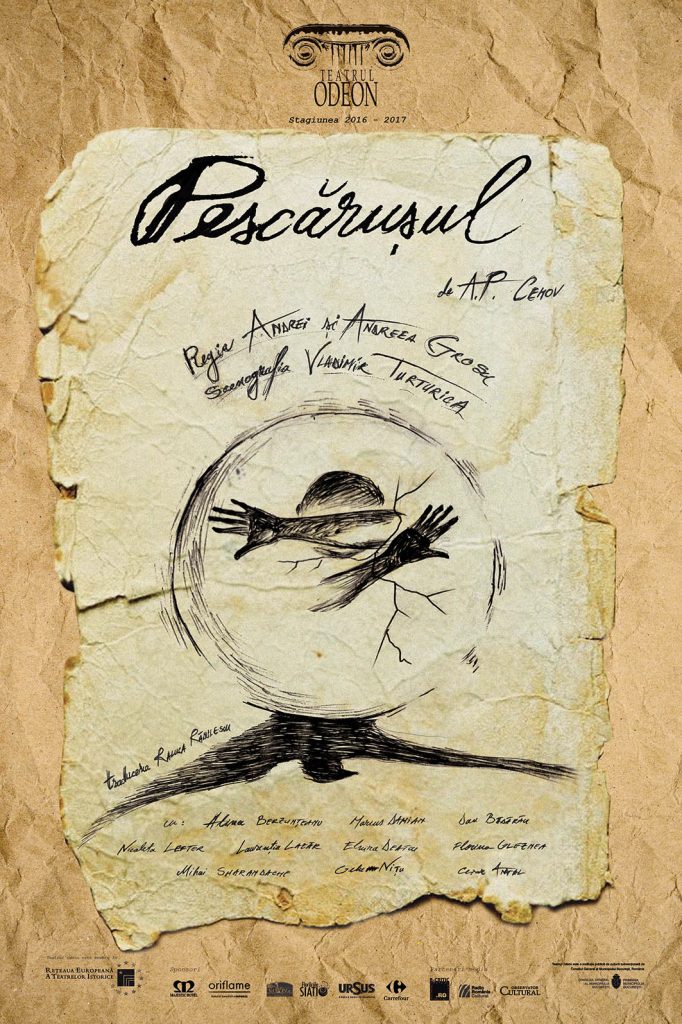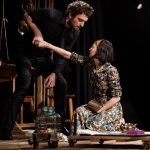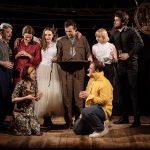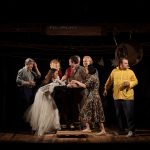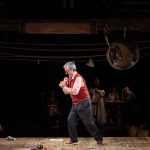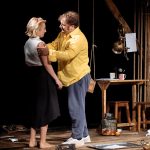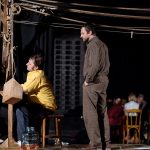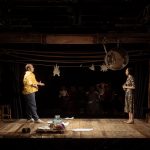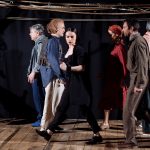by A. P. Cehov, directed by Andrei & Andreea Grosu
Irina Nikolaevna Arkadina – Alina Berzunțeanu
Konstantin Gavrilovici Treplev – Marius Damian
Piotr Nikolaevici Sorin – Dan Bădărău
Nina Mihailovna Zarecinaia – Nicoleta Lefter
Ilia Afanasievici Şamraev – Laurenţiu Lazăr
Polina Andreevna – Elvira Deatcu
Maşa – Florina Gleznea
Boris Alexeevici Trigorin – Mihai Smarandache
Evgheni Sergheevici Dorn – Gelu Niţu
Semion Semionovici Medvedenko – Cezar Antal
Directed by Andrei și Andreea Grosu
Translated by Raluca Rădulescu
Stage design Vladimir Turturică
The “Days and Nights of Theater in Brăila” festival, September 18, 2018
“Povești” International Theater Festival, Alba Iulia, May 9, 2018
Excelsior Teen-fest, Bucharest, October 1, 2017
The Seagull is chronologically the first of the four masterpieces of A.P. Chekhov (1860 -1904). Written in 1895 it created an enormous fascinations not only for theatre people, but also for the general audience up until today.
At the Odeon Theatre, the new version of the play is created by young directors Andrei and Andreea Grosu:
Our Seagull is a world that tries to compose itself out of sounds, colors, materials, thoughts and movements, similar to an architectural construction on which we relay like an invisible structure of resistance. We searched to look towards the direction where everything is related to survival, in which we are doing anything possible to distance ourselves from the scaring ending. We tried to change it, to fool death in all of its forms. A frame with people fleeing in all the directions of what is destined for them, people that hope to change the course of time, that dream of words with other meanings once spoken. We changed senses and we threw all together, with no safety net. In each others’ arms.
Photos by Adrian Bulboacă
Press reviews
Andrei and Andreea Grosu read “The Seagull” with real interest, with curiosity and intelligent ambition. The adapted and restructured script that constitutes the base layer for the Studio’s Hall production at Odeon Theatre has freshness, a contemporary rhythm and keeps the underground emotion of the original play. This “seagull” flies as fascinating as the bird from the end of the 19th century, but now has a nickel and chromium body and it’s radio-controlled by the spirit of the present.
(…)
This is a personal reading of the play that could seem an impiety, a blasphemy to the ones that stupidly raise on a pedestal the gods of theatre. For the ones that are truly looking for new forms of theatre, with no shudders, no gritting teeth and no puerile stubbornness, this could be a joy. And since we are rarely and more superficial enjoying things, it would be a great shame to miss out on such a generous chance.
Alina Epingeac – May 16th, 2017 – yorick.ro
What Andrei and Andreea Grosu are proposing, in one of their first production outside Unteatru’s cocoon, is a “Seagull”, how could I describe it?, essentialized, in which the complex connections between characters, closely and detailed described by Chekhov, are here simplified, abruptly explained and shown in an almost brutal manner, with no other nuances. The meanings of the play are not changed completely (it might be since the texts is too strong and to well written), but the traditional accents are drastically changed – by amputating the text, by introducing a whole new scene, by re-arranging the scenes and, most important, by the acting. These new changes, the new and unexpected accents do have a purpose in the text and do not betray (not in a scandalous way) Chekov.
Liviu Ornea – Observator Cultural – May 19th, 2017 / Nr. 872
Andrei and Andreea Grosu’s idea of giving the Theatre the main role is not forced, even if it means the submission of secondary characters and their personalities. The result is worthy because Chekov is not betrayed – everything has tension, poetry, metaphysical shivers. More than just existing on the lakeshore, the story of unfulfilment, of mad dilemmas, of scattered illusions from “The Seagull” is consumed on the holy stage, the only one that gives mystery, substance and meaning to a wandering existence
Răzvana Niţă – Revista Teatrală Radio – May 17th, 2017
